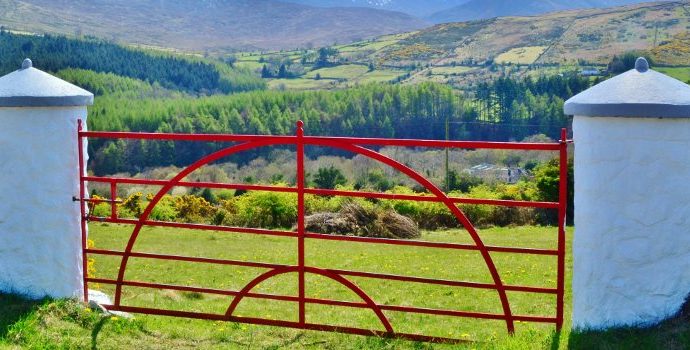Imperative for Taoiseach to Intervene with President Juncker on Mercosur & Rein in Trade Negotiators

IFA National Chairman Jer Bergin has called on Taoiseach Enda Kenny to intervene at the highest European level with Commission President Jean-Claude Juncker ahead of tomorrow’s engagement between EU and Mercosur negotiators in Brussels and the imminent exchange of offers between both sides.
Jer Bergin said the Taoiseach has to set out the highly damaging implications of any Mercosur deal on farm families, particularly for beef producers, and insist that President Juncker rein in the trade negotiators who are ignoring the lack of standards that have been identified by the EU’s Food and Veterinary Office.
The IFA National Chairman has highlighted the FVO audit in Brazil in October 2014, which looked at four holdings/farms cleared for export to the EU. On the key issue of animal identification (cattle tagging and traceability), which underpins almost all animal health and food safety controls, the vets from the FVO found the following:
- At one large holding, which included feedlot facilities, the authority was unable to provide an accurate number for animals that were present on the holding at the time of the visit, including the number of animals already identified and those not tagged;
- Ear tags were missing or could not be accounted for. The overall situation was not helped by the fact that cattle ear tags were taken from stock in a disorganised manner, further complicating the process of checking the inventory of ear tags in stock and ascertaining which ear tags had already been applied;
- After a lengthy assessment…. official services were unable to reach a final number of animals present on the holding at the time of the audit;
- On the same holding, cattle ear tags were being stored for another holding which was in the initial stages of the process of seeking approval as an ERAS holding;
- No records were kept of the administration of veterinary medicines to the animals. Instead, a visual method was used
Despite the above findings, the FVO report conclude ‘the controls regarding holding registration, identification and registration of cattle and animal movement controls on ERAS holdings were generally satisfactory.’
In Ireland, all animals are individually double tagged (one in each ear) within 7 days of birth and registered on a central database (AIMS) within 21 days, with an individual passport issued to the farmer, which stays with the animal for life. In addition, all movements are notified in real time or prior to movement so as to keep the AIMS accurate and up to date. All Irish cattle are registered on the AIMS database, which numbered 6,000,000 cattle at the end of last year.
Jer Bergin said, “A Mercosur trade deal would be unequivocally negative for Irish and European agriculture and would particularly damage Ireland’s important beef sector”.
“The European agricultural policy environment has changed dramatically since the last market access offer was made by the EU in 2004. The abolition of milk quotas last year has resulted in the expansion of the EU dairy herd, which is posing additional challenges for the beef sector. Previous analysis by the European Commission has shown that a Mercosur deal would inflict losses of €7.8bn on the EU agriculture sector. The individual losses at farm level would be much higher, particularly for beef farmers. This would have a major knock-on effect on rural economies, resulting in job losses”.
“Production standards in South American countries, such as Brazil, fail to meet EU standards on the key issues of traceability, animal health and welfare controls, the ban on hormone growth promoters and environmental controls.”
On climate change, Jer Bergin said the work of Irish and EU producers in reducing the carbon footprint of the livestock sector cannot be undermined by the importation of large volumes of beef from unsustainable production systems associated with widespread destruction of the rain forest in countries such as Brazil.
He said, “It would make a nonsense of EU climate change policy for Europe to agree a Mercosur deal that displaces sustainable EU beef production with product from South America, which has a much higher carbon footprint.”
The National Chairman said EU beef consumption has fallen by over 500,000t since 2010. The European market cannot absorb large volumes of imports without a very negative effect on prices and farm incomes. He said a new impact assessment of a Mercosur trade deal for European agriculture is urgently required and should be discussed in both the Council of Ministers and European Parliament before proceeding with any further Mercosur negotiations.




